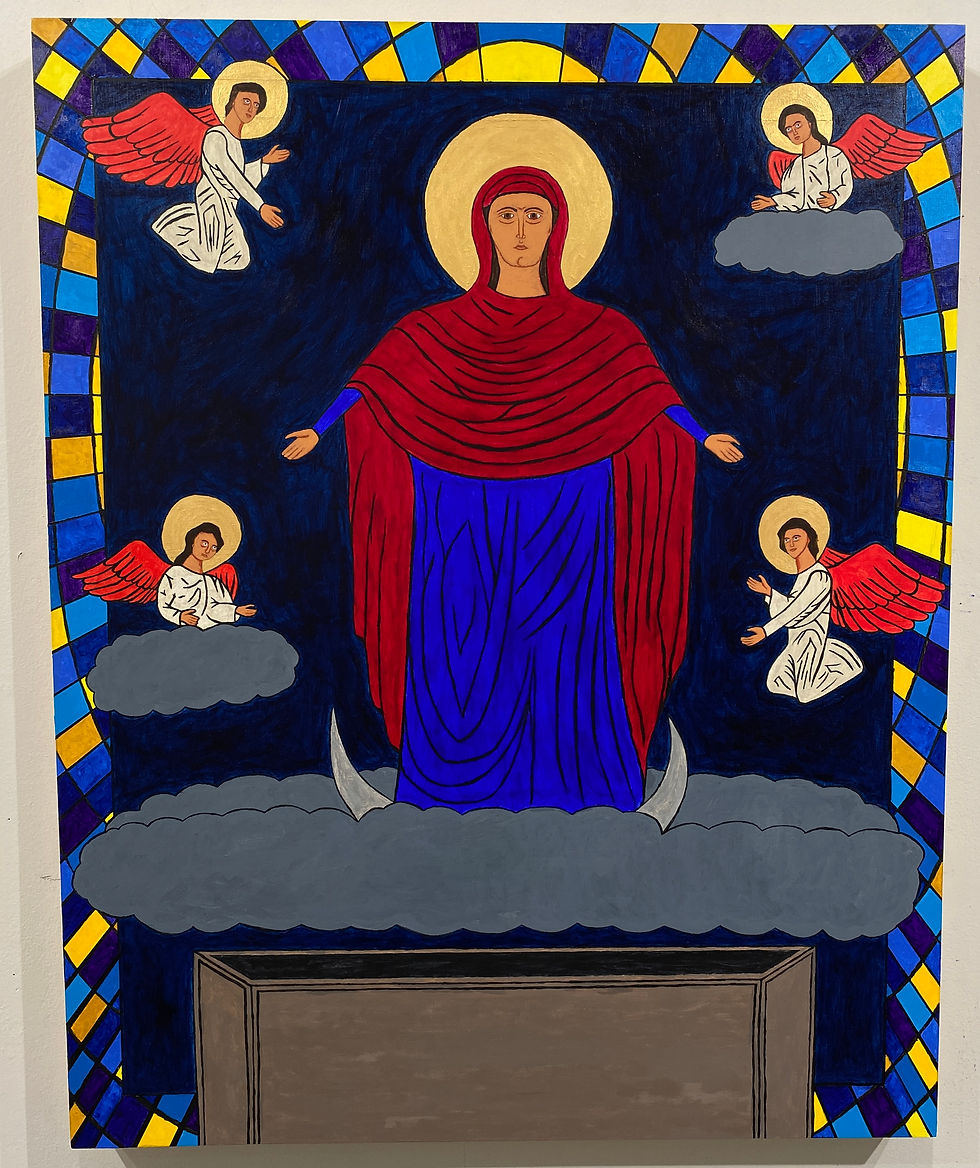The Assumption
- Kevin Hamzik
- Mar 17, 2024
- 2 min read

Growing up Catholic, one of the things we did as a family was go to church, specifically a church dedicated to the Assumption of Mary. One of the defining features of this church was a massive stained-glass window in the back, of course depicting the Assumption. Looking back, I realize now how much of an impact the window had on me, as it started my love for stained-glass windows, but it was also the first piece of religious art I experienced.
The traditional history of the Assumption is and has been debated for some time. While Roman Catholics believed that Mary was assumed into heaven, the Orthodox church believes in the Dormition of Mary, meaning that she died and then was assumed into heaven. What complicated things more is that there's no scriptural evidence that speaks to either tradition. When reflecting on this it brought me back to the unknown nature of death, and the fear that can reside in the unknowingness.
I've dealt with different deaths a lot over the past couple of years, and it really made me confront the fear of death when I didn't want to. Deep down, I think it is impossible to conquer the fear of death, for we do not know what it is that we will enter into. But I find comfort in the stories of the deaths of St Francis and St Clare, who in their final moments were not afraid and "embraced Sister Death", as it is written about Francis.
But it is in the story of Clare's death where I find the most comfort. It is written in the legend of her life that Clare, sick in bed and about to die, says to her own soul, "Go without anxiety, for you have a good escort for your journey. Go, for He who created you has made you holy." It's striking to me that in these final moments of her life, Clare tells herself not to worry, for there is someone who will guide you. She may not know where she is going or what she is entering into, but she knows someone will help her through it. What's even more striking to me is that Clare, who always saw herself as less than anyone else and talks down about herself in her writings, tells herself that she was made holy. There is so much in just that small statement, as Clare is telling herself that no matter how awful you see yourself or how bad you think that you are, God has made you holy. In all of your imperfections and times of weakness, we are still holy.
So yes, we may not know what happens at death, and we may not have the exact tradition of the Assumption down, but the depiction of the Assumption gives us this message that Clare offered herself at her death: that God has a love for us like that of a mother, that no cause or matter will ever separate us from that love, and we will always find God with open arms to us. For God is blessed for having made us who we are, and so we shall move forward without anxiety, for He who created us has made us holy.